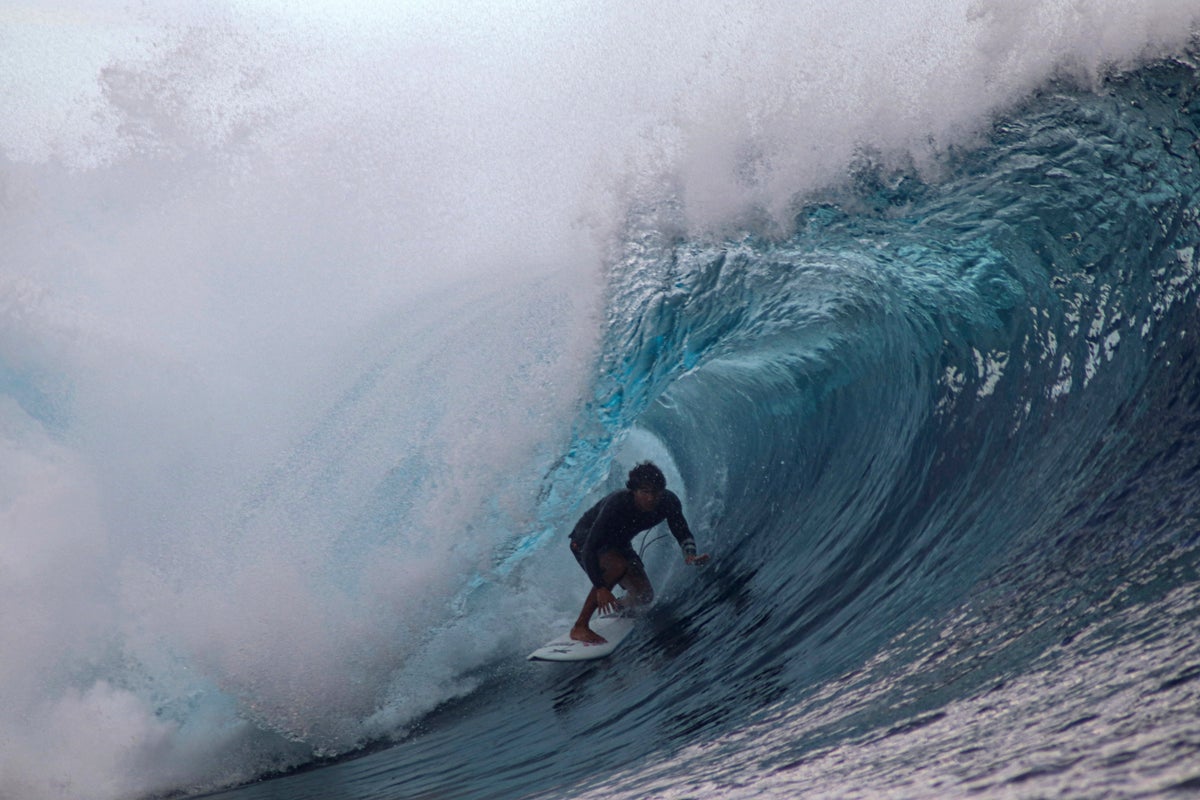
Organizers of next year's Paris Olympics are scaling back the metal tower they plan to build for judges and television cameras at the picture-perfect surfing venue in Tahiti. They're bowing to concerns on the French Polynesian island about damage to sea life and its majestic Teahupo’o wave.
The tower will still be erected out at sea with aluminum but will be smaller, lighter, hold fewer people and require shallower drilling than originally planned, games organizers announced Friday evening.
Critics on the island have voiced fears for coral reefs, fish and other aquatic life when the tower's foundations are drilled into the seabed and mounted on concrete. Islanders pushed for the Olympics to use a wooden tower on existing foundations that's long been the set-up for surfing competitions at Teahupo’o. They have collected more than 160,000 signatures with an online petition.
Tahitian surfer Matahi Drollet has been among opponents of the metal tower. Videos critical of its plans that he posted on Instagram have many tens of thousands of likes. People on the island, some carrying surf boards, also marched in protest last month.
“The ocean and the lagoon is the most precious place we have here. This is where we get our food from, where we play, where ... we spend most of our time and where we have the most perfect wave in the world,” Drollet said in an October post. “It’s a heritage of our ancestors that we need to preserve.”
In announcing revised plans Friday for what they called “a leaner, smaller tower,” Olympic organizers said the old wooden tower previously used to judge surfing competitions on the Teahupo’o wave couldn't be certified for safety reasons for the Olympics.
Time and erosion by the ocean have weakened and corroded the tower's foundations and it “must be replaced if Teahupo’o is to continue to organize surfing events, whether for the Olympic Games or any other competition,” the organizers' statement said.
The surface area of the new aluminum tower will now be reduced by a quarter, to make it the same size as the wooden one — 150 square meters (1,615 square feet) — that used to be erected and then dismantled for competitions, organizers said. It will hold 25 to 30 people during the Olympics, down from 40 initially planned. They will be provided with dry toilets instead of flush ones that originally were to have been linked to the island's sewage system via a wastewater pipe that's now being abandoned.
The tower's weight will also be reduced from 14 to 9 tons — also the same as the wooden one. The foundations won't have to be drilled so deeply as a consequence, organizers said.
“The new tower, less imposing and reduced in size and weight, installed on new permanent foundations, is the solution that will ensure the longevity of the tower and guarantee that future sporting events can be held at Teahupo’o,” the statement said.







